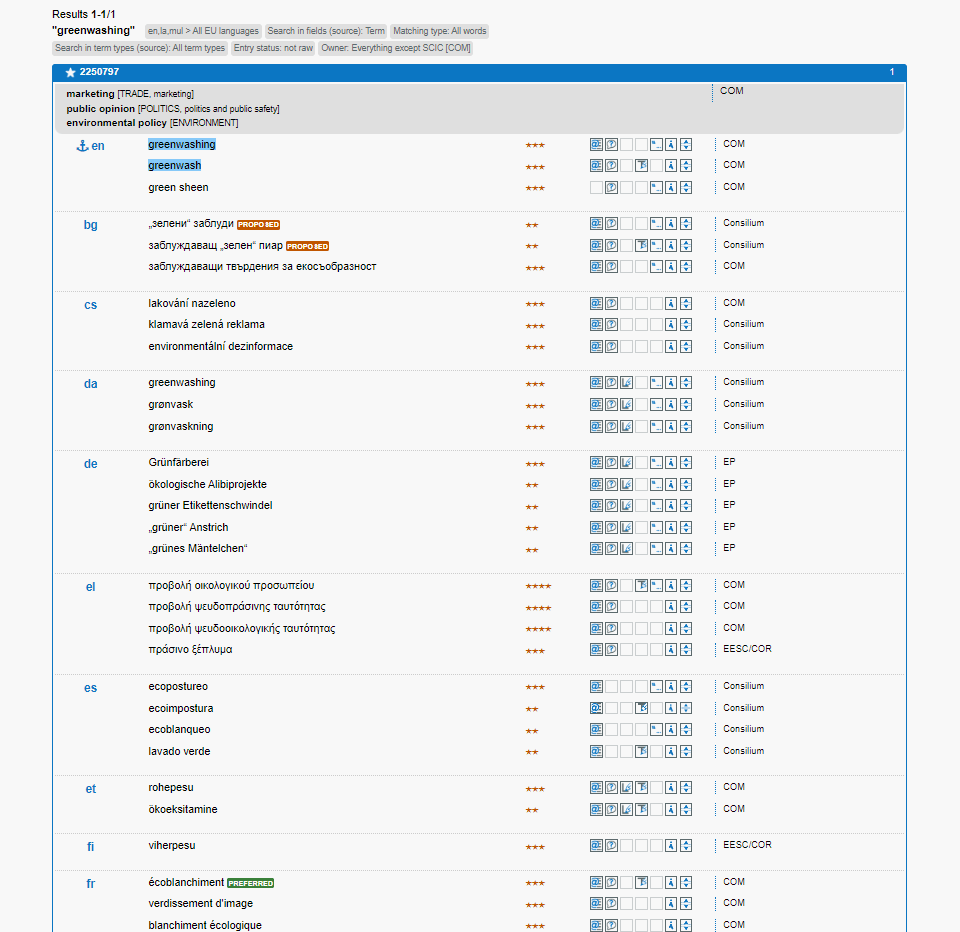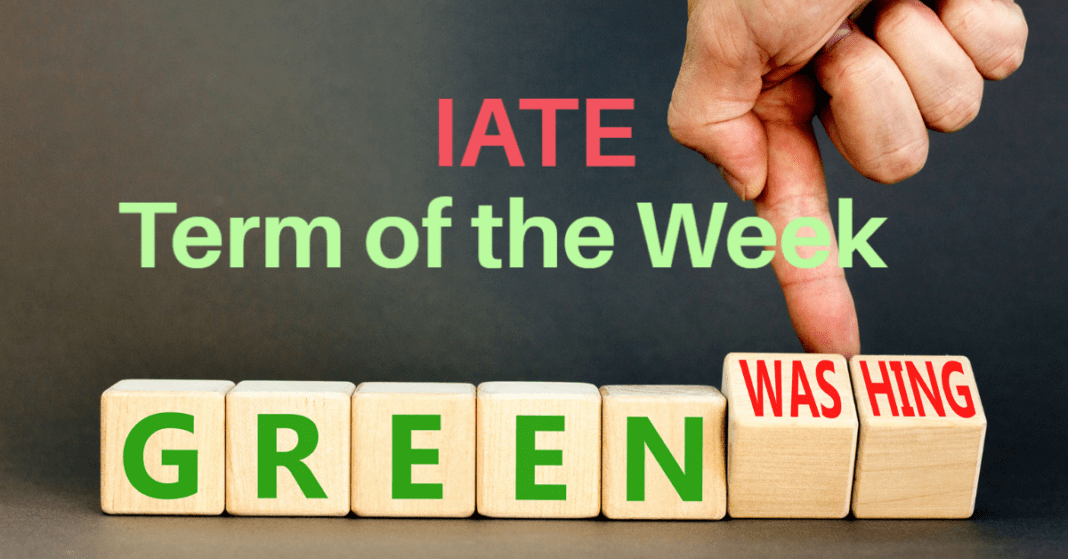“Greenwashing” is a deceptive marketing practice employed by companies to create a false impression of environmental responsibility. It involves making misleading claims or exaggerating environmental benefits of products or services. As the public becomes increasingly concerned about environmental issues, greenwashing has become a growing concern. In IATE, we can find this term defined as “disinformation disseminated by an organisation, etc., so as to present an environmentally responsible public image; or a public image of environmental responsibility promulgated by or for an organisation, etc., but perceived as being unfounded or intentionally misleading”.

The European Union has recognized the need to address greenwashing and has implemented various initiatives to combat this practice. One key initiative is the EU Green Deal, which aims to make the EU’s economy sustainable and carbon-neutral by 2050. The Green Deal includes regulations and standards to prevent greenwashing and ensure transparency in environmental claims.
The EU has also established the European Green Claims Initiative (EGCI) to provide guidance on environmental claims made by companies. The EGCI aims to harmonize standards across member states and develop a common framework for evaluating and verifying environmental claims. This helps consumers make informed choices and enhances the credibility of companies’ sustainability claims.
Furthermore, the EU is working on a Sustainable Products Initiative (SPI) that will introduce mandatory sustainability requirements for products placed on the EU market. This initiative aims to prevent greenwashing by setting clear criteria and performance indicators for environmentally friendly products. It will also promote the use of eco-labels and enhance the traceability of products’ environmental footprint. By implementing these initiatives, the EU is taking a proactive approach to combat greenwashing and promote genuine sustainability. These measures enhance consumer trust, encourage companies to adopt sustainable practices, and contribute to the overall transition towards a greener economy.
References
European Parliament. (2023, May). Parliament backs new rules for sustainable, durable products and no greenwashing. Retrieved from Press Room: https://www.europarl.europa.eu/news/en/press-room/20230505IPR85011/parliament-backs-new-rules-for-sustainable-durable-products-and-no-greenwashing
European Parliament. (2023, May). Stopping greenwashing: Parliament to adopt its position. Retrieved from Briefings: https://www.europarl.europa.eu/news/en/agenda/briefing/2023-05-08/1/stopping-greenwashing-parliament-to-adopt-its-position
Gibbens, S. (2022, November). Is your favorite ‘green’ product as eco-friendly as it claims to be? Retrieved from National Geographic: https://www.nationalgeographic.com/environment/article/what-is-greenwashing-how-to-spot
Lindwall, C. (2023, February). What Is Greenwashing? Retrieved from Natural Resources Defense Council: https://www.nrdc.org/stories/what-greenwashing
Written by Carmen del Campo Hermida

Born in Madrid, Spain, Carmen holds a Double Degree in Translation and Interpreting and Bachelor in Global Communication. She has also studied a Degree on Content Marketing and Social Media. She has been combining her studies with some part-time jobs, which has allowed her to appreciate little things in life, such as spending time with her family and friends and enjoying her hobbies. She is keen on learning from other people and cultures and wishes to get to travel around the world someday.

